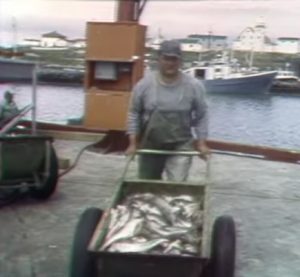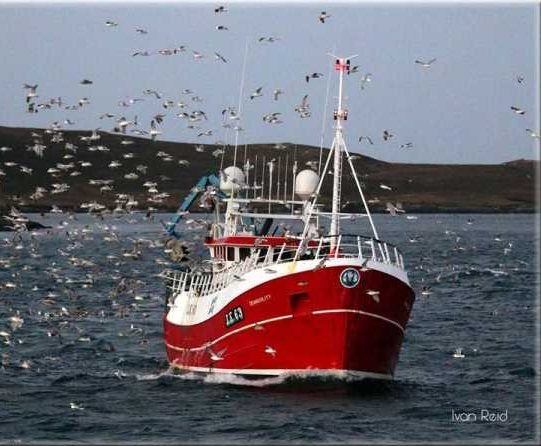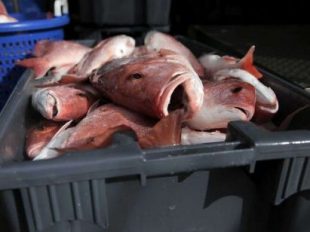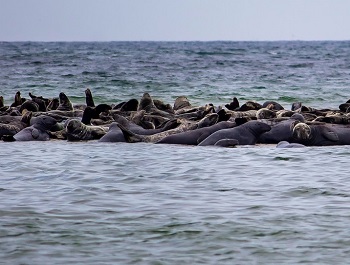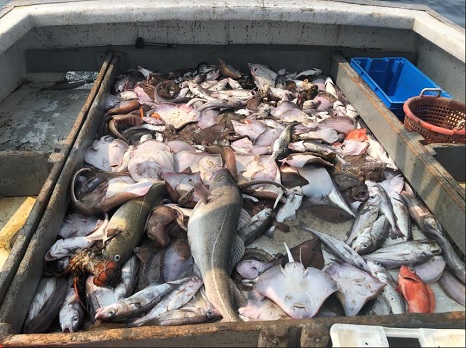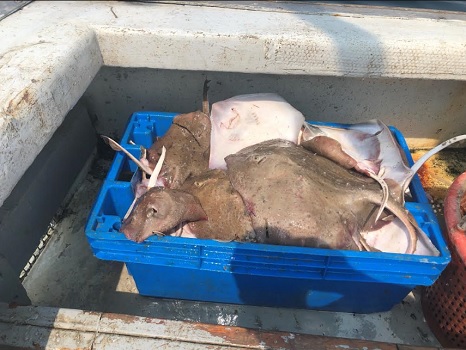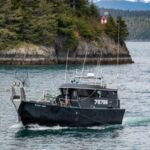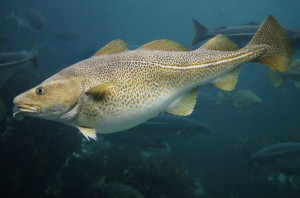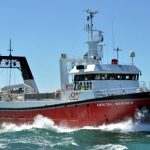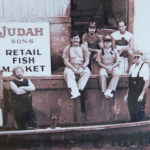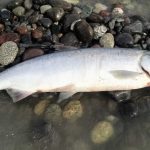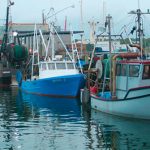Monthly Archives: August 2019
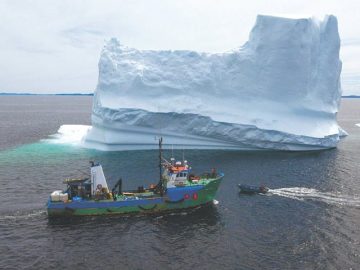
Canadian iceberg hunter in search of ‘white gold’
“It’s a very fine piece of ice,” he proclaims. It’s midday and Edward Kean, a Canadian fisherman who now scours the North Atlantic for icebergs that have broken off from Greenland’s glaciers, is beaming.,, Every morning at dawn, Kean sails out with three other crew members to hunt what has become his own personal white gold: icebergs. For more than 20 years, he has hauled in the mighty ice giants and then sold the water for a handsome profit to local companies, which then bottle it, mix it into booze or use it to make cosmetics. >click to read< 11:08
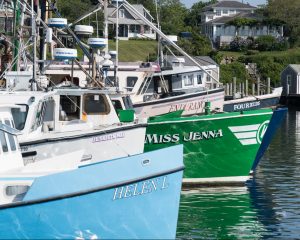
Fishing vessel runs hard aground on Naushon
The fishing boat Miss Jenna, which regularly docks at Tisbury Wharf Co. in Vineyard Haven Harbor, ran hard aground on Naushon early Friday morning.,,, Station Woods Hole respond to the Miss Jenna, Lt. Nathan Mendes said. Mark Brown, owner of TowBoat U.S. Falmouth, said he was on scene at 3:30 am, about 20 minutes ahead of the Coast Guard. >click to read< 09:11
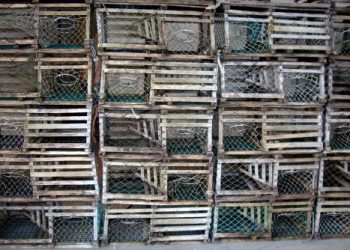
Postscripts: Wolcott Palmer’s contraption made him the king of wooden lobster pots
Wolcott Palmer worked with wood, handsomely, and, based on his legacy of homes in Stonington and at least one in Weekapaug, monumentally, but what qualifies as ingenious was his production of wooden lobster pots, estimated, a few years before his death, at some 80,000 or more. Most were made in the last couple of decades of his life, and from machinery he rigged up over the years into what became a 12-station, drill-and-grind-and-saw-and-squeak, Rube Goldberg-like contraption in his roomy workshop set back and by a brook off Collins Road in Stonington. >click to read< 08:07
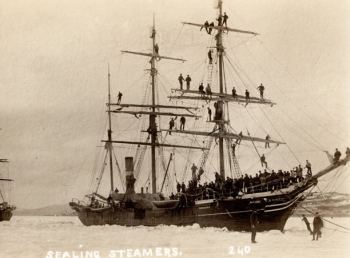
The real Sea Wolf: Captain Alexander MacLean (Part 1)
Many people are aware that Jack London spent time in Korea as a war correspondent during the Russo-Japanese War (1904-05).,, But London has another connection (although tenuous) to Korea through one of his greatest fictional antagonists ― Wolf Larsen. Larsen may have been fictional but he was based on one of London’s acquaintances ― Captain Alexander MacLean. In the 1890s, Nova Scotian-born Alexander MacLean was a well-known name in the regions surrounding the northern Pacific Ocean. Standing 175 centimeters tall and weighing about 86 kilograms, he stood out among his peers, not so much because of his physical size or his blue eyes, or even his 45-centimeter-long moustache (he kept the tips tied together behind his head), but because of his personality and exploits. >click to read< 15:21
The real Sea Wolf: Russians try to tame ‘Sea Wolf’ Captain Alexander MacLean (Part 2) – >click to read<
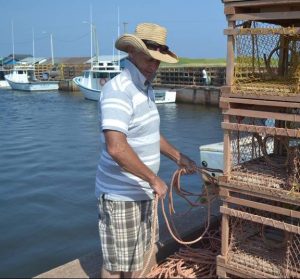
P.E.I.’s fall 2019 lobster season starts Thursday. For the first time since 2015, no fall carapace increase scheduled
The president of the Prince County Fishermen’s Association (PCFA) is hoping this is the year fall lobster fishermen in the northern part of Lobster Fishing Area (LFA) 25 get caught up with their counterparts in the south of their district. After a five-millimetre carapace size increase, spread out over three consecutive years, there are no further increases scheduled for the fall season. The stop in the carapace climb is “very important, especially at the north end,” Lee Knox said. “It’s great we’re finally there. Hopefully, this year, we will see an increase in the north end rather than a decrease.” >click to read< 12:33
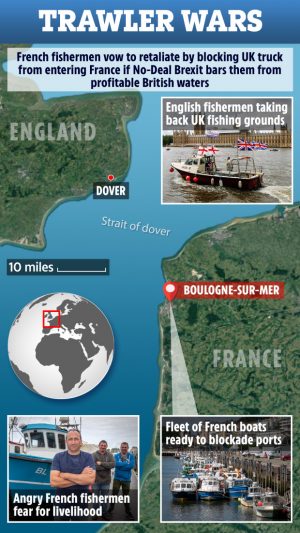
TRAWL-OUT WAR The French and British fishermen set for battle at sea if UK leaves the EU without a deal
In a coastal arc from Poole, Dorset, to Lowestoft in Suffolk, his co-op’s trawlers net tons of herring, plaice, sole, squid, cuttlefish, mackerel and red mullet, mostly for sale in France, Italy and Spain. On Boulogne-sur-Mer’s quayside, 32,000 tonnes of fish are landed each year and 5,000 jobs depend on the industry. But with a No-Deal Brexit on the horizon, Eric’s flotilla faces being banned from fishing in UK waters. “It will be a disaster for us,” he says. Britain will exit the Common Fisheries Policy at midnight on October 31 if Boris Johnson pushes through Brexit without a deal. >click to read<11:26

Asian Carp Crisis: Sen. Blackburn meets with fishermen in Henry County
Local fishermen and government agencies met at North American Caviar Inc. in Henry County Friday morning to discuss solutions to a looming crisis. “Before the carp, no, I’ve never seen anything like this,” said local commercial fisherman Neil Matlock. For small businesses like North American Caviar, harvesting carp isn’t as lucrative. Local fishermen agreed that they need more help from the state if they want to expand capacity and catch more carp. >click to read< 09:45
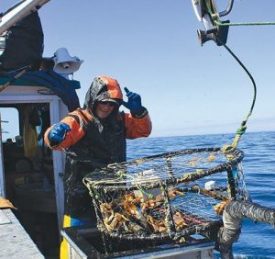
Crabbing in Oregon brings Florence’s Novelli family together
Down the dock from ICM Restaurant in Historic Old Town Florence is a metal gate that leads down to the boats on the water. In a little blue boathouse on the left of the dock is Novelli’s Crab and Seafood, owned and run by Amber Novelli and her husband Kyle — the only active commercial crabbers and fishermen who live and work in Florence. It’s about 8:40 a.m. when Amber and Kyle hop onto their turquoise crabbing boat called The Aquarius and head downriver to the fuel station, which resembles a typical gas station, except for its location on the end of a dock. Today, they are going out to check about a quarter of their 200 crab pots. >click to read<20:13
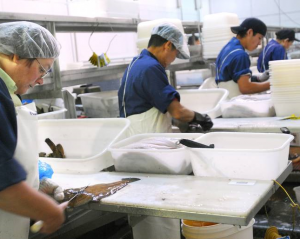
Longtime Bellingham fish processor to close portion of operation and reduce staff
A longtime seafood processor is shutting down a part of its operations, resulting in the layoff of about 40 workers. Bornstein Seafoods CEO Colin Bornstein said in an interview with The Bellingham Herald that the business is closing the groundfish processing portion of its Bellingham operations later this month. It will keep its value-added albacore tuna operations intact, which employs about 25 people. The decision to close the groundfish processing portion was because of changing regulations and commercial fishing fleet consolidations, Bornstein said. >click to read< 16:58
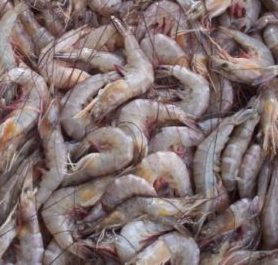
Request for Comments: Changes to Allowable Fishing Effort in the Gulf of Mexico Commercial Shrimp Fishery
NOAA Fisheries requests your comments on changes to regulations for the Gulf of Mexico commercial shrimp fishery. The changes would: increase the allowable amount of commercial shrimp trawl fishing effort in certain federal waters of the northern Gulf of Mexico., revise the Gulf of Mexico shrimp fishery management plan framework procedure to allow changes to allowable fishing effort through an expedited process. Comments are due by September 30, 2019. How to comment, frequently asked questions. >click to read, comment< 16:17
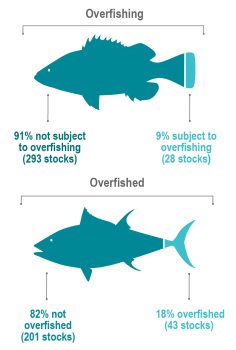
2018 Report to Congress on the Status of U.S. Fisheries
Number of US fish stocks at sustainable levels remains near record high – Today, the National Oceanic and Atmospheric Administration (NOAA) released the Status of U.S. Fisheries Annual Report to Congress, which details the status of 479 federally-managed stocks or stock complexes in the U.S. to identify which stocks are subject to overfishing, are overfished, or are rebuilt to sustainable levels. >click here to read a rundown of the report< To read the report, 2018 Report to Congress on the Status of U.S. Fisheries >click here< 15:26

NOAA Scientist Turns Climate Skeptic, Recounts Censorship, Bias
The “science is settled” liberal media don’t want people to know there are scientists, even award-winning ones, who dispute the idea of catastrophic global warming. Because outlets ignore and censor such scientists, curious individuals must turn to other sources such as English journalist James Delingpole’s columns or podcast, the Delingpod. On the July 25 podcast, he interviewed award-winning, former National Oceanic and Atmospheric Administration (NOAA) scientist Dr. Rex Fleming about his conversion from global warming alarmism to skepticism. >click to read< 13:35
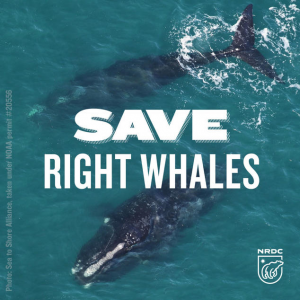
Are the ENGO’s pushing propaganda to pressure your Representatives and sway the public against you?
From the article: What evidence is there that Maine contributes towards right whale entanglement? The Maine congressional delegation has also suggested that the state’s fisheries do not contribute to right whale entanglements. Yet, Maine has almost three million licensed traps and logic dictates the high density of vertical lines associated with those traps poses a significant risk of entanglement. An encounter between a whale and even a single vertical line can result in a deadly entanglement. >click to read< Who supports these ENGO’s, anyway!

Walk scheduled to remember Lowcountry crabber
Friends and family of a Lowcountry crabber who drowned last week in Charleston Harbor will gather Friday night to remember him. Terrance Singleton, 30, went missing on July 24 from his pro-crabbing vessel. His disappearance was discovered when the Coast Guard Cutter Cormorant was headed out to conduct a training exercise and spotted his 20-foot crabbing boat off of Fort Johnson,,, Singleton operated T and J Seafood with other members of his family and was one of three crabbers in the family, his aunt, Marsha Singleton said. She said all that mattered to him was his two sons, ages 5 and 9, and crabbing. >click to read< 12:07
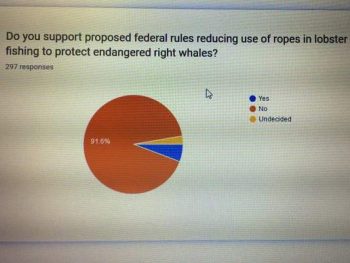
Editor’s Note and Results of Online Poll on proposed lobstering rules by Daniel Dunkle
Yesterday I posted an online poll asking: “Do you support proposed federal rules reducing use of ropes in lobster fishing to protect endangered right whales?” Last night and this morning I heard from several local lobstermen who felt this question was poorly or unfairly worded. They argued that the way the question is worded makes it sound like these rules absolutely would protect these whales.,,, My intention with the question was not to take sides. What I should have written was “rules aimed at protecting whales.” In any case, our polls are not scientific samplings. >click to read< 11:18
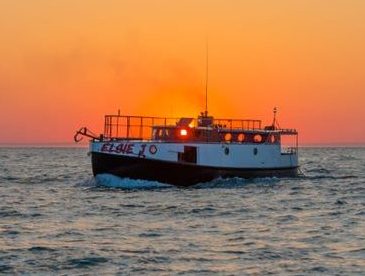
Elsie J. – A 1945 Great Lakes fishing tug gets a new life as a tour boat in Michigan
After Chris Jensen returned home to South Haven, Mich., from World War II with a broken back, he was told he might never walk again, let alone resume his commercial fishing career. But Jensen recovered and soon bought a 48-foot fishing tug that plied the waters of eastern Lake Michigan for more than three decades. He named the boat Elsie J for his daughter. The ship’s crew pulled in loads of whitefish, perch and oily chubs, which were popular for smoking. >click to read< 10:59

Cleanup called off after 12,000-litre Hibernia oil spill
It’s not possible to clean up what remains of an estimated 12,000 litres of oil spilled from the Hibernia platform off Newfoundland last month, according to the board that regulates the industry. The Canada-Newfoundland and Labrador Offshore Petroleum Board said in a statement Thursday that surveillance by satellite, air and sea in recent days showed the oil had become so diluted that it can no longer be recovered or dispersed. >click to read< 10:18
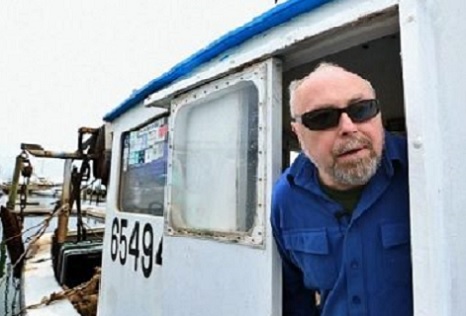
UPDATED: The hidden cost of fishery monitoring
Recently my crewman came into the wheelhouse with a complaint. I am a commercial fisherman and we were on our third consecutive day of carrying at-sea monitors, which we are required to do in 2019 on at least 31% of trips. This is like having your own state policeman ride with you to work to make sure you do not exceed the speed limit. They watch you to make sure you do not throw over any fish that are part of your quota. Because the government wants their monies worth, they have them weigh everything you bring on board. By David Goethel >click to read< 18:41 Dave sent these photo’s which were not included in the article.
100% fishing monitoring is unnecessary, David Goethel
August 13, 2019
I would like to correct some misconceptions and rebut some of the statements made by Ms. Johanna Thomas in her Aug. 2, 2019 opinion, Monitoring will help improve New England’s fisheries. >click to read< Ms. Thomas sites the West coast Groundfish fleet as a success story. That is not the case as told by the fishermen on the West coast. She also fails to mention that 50% of the fleet was bought out in a $60 million-plus dollar buy out prior to the implementation of catch shares. This alone should have rebuilt stocks. >click to read< 21:28
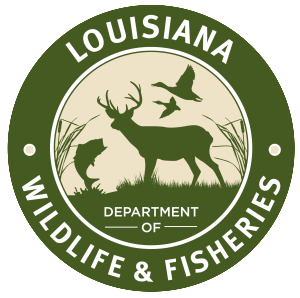
Louisiana Department of Wildlife and Fisheries describes floodwater impacts on LA seafood as ‘extreme’. Fishermen are concerned.
Scientists pointed out significant numbers of fin fish, shrimp, crab and oysters lost so far this year, with the sharpest declines seen at oyster beds. Marine fisheries biologist Nicole Smith said oyster men have reported 60% to 100% mortality rates among coastal oysters.,,, Kimberly Chauvin attended the meeting to represent the David Chauvin Seafood Co. in Dulac. She said her central location dodged the worst of the floodwater intrusion, but she is concerned about the flood of toxins the floods carry with it. Video, >click to read< 15:34
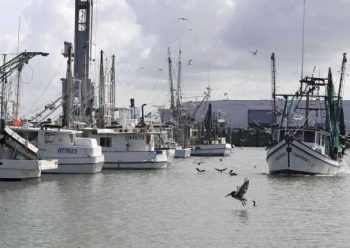
Bids sought for $300K in repairs to Galveston’s Pier 19
Galveston’s commercial fishing fleet has called Pier 19 home for decades. Like any place that’s been occupied for a long time, the docks have started to show their age. The Port of Galveston now plans to give the pier a makeover.,,,Pier 19 has been the home of the Mosquito Fleet, Galveston’s commercial shrimping fleet, since as early as 1850. Over the decades, the size of the fishing fleet has shrunk, but the pier remains home to shrimpers, seafood markets and charter boat companies. 5 photo’s, >click to read< 14:31
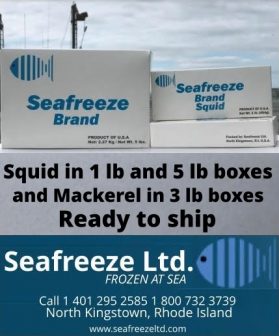
Always Top Quality! Your Seafreeze Ltd. Price Sheet for August 2019
Contact our sales team today @ 401 295 2585 or 800 732 273 To review the complete price list from Seafreeze Ltd., >Click here< – We are Direct to the Source = We are Fishermen – We are Seafreeze Ltd.! >Click here to visit our website www.seafreezeltd.com/<
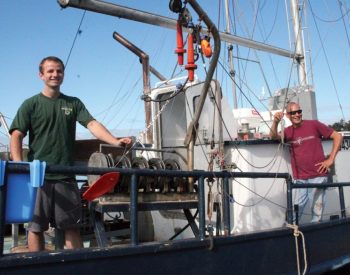
Tuna hit the docks
Newport’s fleet of jig fishermen are hooking into albacore tuna, finally bringing to the docks a sizable number of warmwater fish whose arrival is keenly awaited by customers looking to grill fresh and can for winter. Mark Whittier, captain of the 51-foot schooner Kathleen, had five tons of fish aboard on Tuesday, following a 13-day trip. Price at the plant for frozen fish is around $3,400 a ton. Fish have been averaging around 12 pounds. >click to read< 11:49
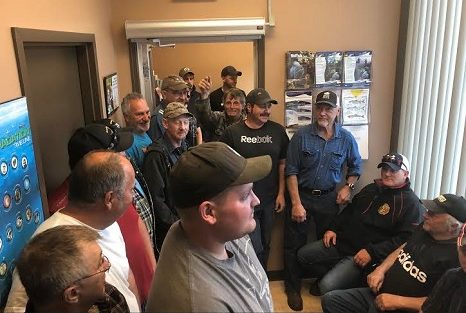
BREAKING – Caplin harvesters take over DFO office in Twillingate in protest
Upwards of 30 inshore harvesters took over the Fisheries and Oceans office in Twillingate this morning to protest the department’s failure to open the caplin fishery off Newfoundland’s northeast coast in fishing zone 3K. “We’ve taken over the building in a peaceful protest, but we’re not budging,” said Richard Gillett, a well-known Twillingate fisherman and one of the protesters. This will be updated >click to read< 10:45
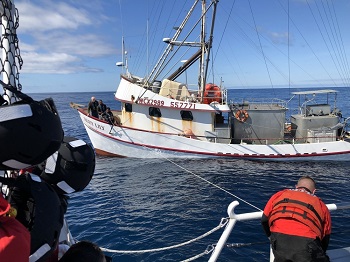
Coast Guard completes marathon tow of disabled fishing vessel off Oregon coast
Coast Guard crew members aboard three separate vessels rescued a 50-foot commercial fishing vessel disabled 116 miles west of Newport Wednesday. The 41-ton vessel, Ruby Lily, which reported 6 tons of albacore tuna and three crew members aboard, was safely moored in Yaquina Bay after a four-day opperation. Watchstanders at Coast Guard Sector Columbia River received notification at 4:35 p.m. Sunday from the crew of the Ruby Lily, who reported that the vessel’s rudder was stuck. >click to read< 10:01

Lobster processing claws its way into Mass. law
The long-sought measure to expand and modernize lobster processing regulations in Massachusetts is now law, as of Gov. Charlie Baker’s signature on Wednesday.,,, Senate Minority Leader Bruce Tarr, R-Gloucester, who has championed the measure through more than four frustrating legislative cycles, estimated that up to 80 percent of lobsters landed in Massachusetts — the nation’s second-largest harvester of American lobsters, behind Maine — are transported to out-of-state processors only to see them return here as value-added products for retail and restaurant consumers. >click to read< 09:11
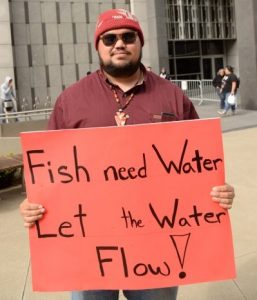
Yurok Tribe and Commercial Fishing Group, PCFFA, File Suit to Save Klamath Salmon
This afternoon, the Yurok Tribe and the Pacific Coast Federation of Fishermen’s Associations (PCFFA) filed a lawsuit against the Bureau of Reclamation and the National Marine Fisheries Service in response to low flows and high salmon disease rates under the federal agency’s new management plan for the Klamath River. The groups are represented by the environmental law firm Earthjustice. >click to read< 08:39






